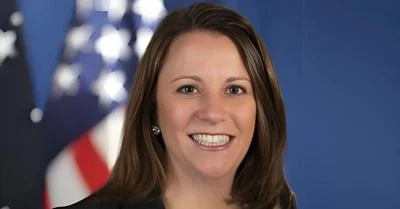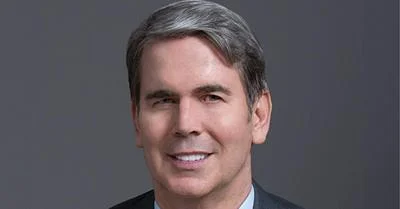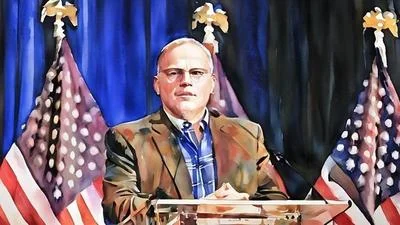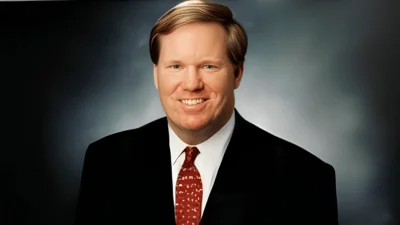The Congressional Record is a unique source of public documentation. It started in 1873, documenting nearly all the major and minor policies being discussed and debated.
“THE 1997 OMNIBUS APPROPRIATIONS BILL” mentioning the Department of Interior was published in the Senate section on pages S12117-S12118 on Oct. 1, 1996.
The publication is reproduced in full below:
THE 1997 OMNIBUS APPROPRIATIONS BILL
Mr. KERREY. Mr. President, although I am thoroughly disappointed in the process we endured to reach agreement on the fiscal year 1997 omnibus appropriations bill, H.R. 4278--I am pleased with the content of the bill. It is a huge package, so I am sure we will not know its full impact until weeks--possibly months--into this fiscal year. It would be difficult to put a package like this together without there being some disappointment in the final product. However, as a member of the Appropriations Committee, I worked hard to see that many programs that are important to Nebraskans and this Nation were addressed.
Let me highlight some of these programs.
Commerce-Justice-State
I have long supported the National Telecommunication Administration's Telecommunications and Information Infrastructure Assistance Program. Last year I led the effort on the floor to include $21.5 million for TIIAP and I'm pleased to see that amount in fiscal year 1997 funding. This is especially important when considering the Senate Commerce-
Justice-State Subcommittee began the process with zero funding for this important program. People sometimes ask why we need this program when there is so much going on in the telecommunications industry. We need it to help our rural areas share fully in the promise of networking and telecommunications. We need it to help our nonprofit sector participate. We need it to encourage the imaginative and sometime high-
risk demonstrations of what can be done with the technology.
We have included $174.5 million for the Juvenile Justice and Delinquency Prevention Program and $560 million for the Byrne Memorial Grant Program which is important and insightful. If we can stop juveniles from turning to crime, I believe we have a chance at decreasing the need for courthouses, incarceration, and prison construction. The potential benefit is well worth the investment.
Interior
I am pleased to see that the bill includes funding for one of my top priorities, Back to the River. This project is a collaborative effort to create a recreational, ecological, and cultural corridor along the Missouri River in the Omaha/Council Bluffs region. The project encompasses 64 river miles and has been ongoing for the last 2 years. It has the support of several public and private agencies. The Back to the River project will benefit Nebraska and the Nation by providing habitat restoration, floodplain management, recreation and river access, economic benefits, cultural resources and environmental education. The National Park Service and Fish and Wildlife Service have both been involved in this project.
The omnibus bill funds the National Endowment for the Humanities at the current level, which is higher than either the House or Senate number in the original Interior appropriations bill. NEH programs provide vital support to scholarship, education, and public programs in history, literature, and other aspects of the humanities. Support for our State humanities councils is particularly important because it is these generally small offices in each State that expand access to the humanities and that allows for a focus on local history, local literature, and local culture. They serve the very important function of helping us understand who and what we are.
The bill also funds the National Endowment for the Arts at its current level. NEA programs support our many performing arts' companies throughout the United States and our museums and also help fund the State arts councils.
In both instances I wish we had been able to provide additional funding but there will be an opportunity to revisit these programs next year.
Labor-HHS
I am pleased about the increase in funding over the House and Senate levels for educational technology. I share some of the conferees' concerns over the educational technology program and believe that increased efforts must be undertaken to insure that technology advances learning and curriculum goals and that we understand how technology contributes to improved student performance. Over the years, we have come to understand that students' learning patterns may vary widely; technology offers us the opportunity to consider and to respond to the various ways in which an individual learns.
Of vital importance to Nebraska is the Impact Aid Program. Our commitment to militarily impacted and Native American districts is a Federal obligation; in fact, by shirking our responsibility to these districts, we create yet another unfunded Federal mandate. For fiscal year 1997, we were able to increase funding by $37 million over fiscal year 1996 to $730 million for Impact Aid districts, including additional funding for our heavily impacted, section F districts, such as Bellevue.
Equally important, this year's appropriations bill includes increased funding for the title I and Safe and Drug-Free Schools programs, both of which have proven to be successful programs here in Nebraska for the benefit of our students. Title I for disadvantaged students receives a
$470 million increase over fiscal year 1996 which brings the total for fiscal year 1997 to $7.7 billion. This will enable us to serve nearly a half million more children. Safe and Drug Free Schools--a program for which I have heard many accolades from Nebraska educators and administrators--receives an additional $90 million over 1996 funding, for a total of $556 million.
Increasingly, concern exists among both students and their parents regarding escalating college costs. We are providing increased funding which will allow 3.8 million students to receive aid while also increasing the maximum award level to $2,700, a $230 increase. For fiscal year 1997, a total of $7.6 billion will be available for student financial assistance--$1.3 billion above the previous year's appropriations.
Job training efforts will also benefit from increased funding levels. I am especially pleased to see Summer Youth Employment and Training funded at $871 million. This program provides vital funding for youth summer jobs.
I am also pleased to see that the Health Careers Opportunity Program was funded at $26.8 million--an increase of nearly $3 million over fiscal year 1996. This award goes to medical schools and other medical professional training programs that recruit and train minority and disadvantaged students.
Treasury-Postal
We were able to include funding, which the House had rescinded, for the National Archives for an on-line, interactive data base available via the World Wide Web. It provides unprecedented access to the National Archives' vast holdings. The National Archives holds a rich and priceless resource that, until now, has had limited access for a relatively small number of people. I feel strongly that information held by government at all levels should become more accessible and usable by the average American citizen. The treasures maintained by the National Archives should be accessible to all Americans--not just researchers who reside near College Park, MD, or those individuals who can afford a trip to Washington, DC or those who are fortunate to have a Federal archives facility located in their State.
The increase of methamphetamine use in the Midwest is a serious problem. I am pleased to see that this bill includes $8 million to designate the Midwest States of Nebraska, Iowa, Missouri, South Dakota, and Kansas as a high-intensity drug trafficking area [HIDTA]. This designation will provide added law enforcement resources to these Midwest States and will allow law enforcement officials in these states to conduct a coordinated tracking and enforcement effort.
Mr. President, let me restate my disappointment in the process that accompanied this spending bill. I firmly believe that every program and project that is funded with taxpayer dollars deserves the full scrutiny of all Americans, and should not be conducted in back-room negotiations. Two of the bills included in this package--those funding the Departments of Labor, Health and Human Services and Education and the Departments of Commerce, Justice and State--were never considered on the Senate floor. Further, funding legislation for the Department of the Treasury and the Postal Service as well as the Department of Interior were partially considered, but never finished.
Indeed, Members of this body--from both sides of the aisle--were denied the opportunity to offer pertinent, important amendments to these funding bills or to be heard simply because the process of debate and discussion was brought to an abrupt end and replaced with back-room negotiations. Mr. President, this is not the way policy should be made.
Last year we needed to pass several continuing resolutions--temporary funding measures--before we finally came to an agreement on spending levels for fiscal year 1996. We did not finish our appropriations work until April of this year. And that came after having to shut the Government down three times, which resulted in the additional expenditure of taxpayer dollars.
When faced with explaining why the Government spends hard-earned taxpayer dollars on any program or project, I believe that it must be able to pass the coffee shop test. That is to say, it must be defendable in a coffee shop in Fremont, North Platte, or O'Neill, NE, or any small town in the United States. After all it is their money we are spending. So at the very least, we as elected officials owe it to the people we represent to openly debate the merits of Government spending on the Senate floor.
I thought the Republican leadership had learned the lesson last year that getting our work done as legislators and representatives was the most important matter--not individual or political glory. And while this year we are not in the same situation of having a temporary funding measure--and a Government shutdown has been avoided--things are not that much different. I truly believe the American people have been shortchanged again.
Yes, I am glad the task is complete. And I am pleased, for the most part, with what I know is included in this funding legislation. But, Mr. President, I am concerned that the process--and perhaps this institution--has been slightly diminished. Diminished because the appearance and the reality is that our duty as legislators--and the interests of the American people--took a backseat to the interests of campaigning for reelection. During a time when we face an increasingly skeptical electorate, we can ill afford to continue this trend.
____________________








